Cargando...
Recursos educativos
-
Nivel educativo
-
Competencias
-
Tipología
-
Idioma
-
Tipo de medio
-
Tipo de actividad
-
Destinatarios
-
Tipo de audiencia
-
Creador
-
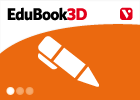
Think about it. Respiration
EduBook Organización
- 4625 visitas
Remember what you have studied in this section and answer the questions: Which types of animals do not depend on a circulatory system for respiration? The total surface area of gas exchange in human…
-

True / False. Cellular respiration
EduBook Organización
- 3056 visitas
Are these sentences true or false? Our body exchanges oxygen for carbon dioxide inside the pulmonary arteries. The pulmonary alveoli are connected to a network of very small blood vessels called…
-
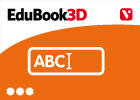
Complete. Mammals' bodies
EduBook Organización
- 3055 visitas
Complete the text with the missing words: jump – diaphragm – limbs – lungs – cetaceans Mammals have four , originally with five toes, adapted to different lifestyles. Walking mammals use their…
-

Final self-evaluation 11.02 - The Animal Kingdom (II). Vertebrates
EduBook Organización
- 2727 visitas
Complete the following sentences with the missing words: The of amphibians is not protected against drying out. The presence of a is the difference between anuran and urodele amphibians. Amphibians have…
-
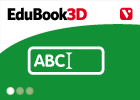
Complete. Inhaling and exhaling
EduBook Organización
- 2492 visitas
Complete this text with the correct words: Air is renewed in the pulmonary alveoli of the lungs when we and . We use a large muscle called the and the muscles. The diaphragm is located below the . It is…
-

Self-assessment T8 05 - Nutrition, breathing and circulation
EduBook Organización
- 2274 visitas
Are these sentences true or false? Our body exchanges oxygen for carbon dioxide inside the pulmonary alveoli. Cellular respiration takes place in the lungs. Cellular respiration takes place in the…
-
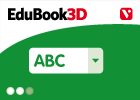
True / False. The ribcage
EduBook Organización
- 2160 visitas
Are these sentences true or false? The ribs are long, curved bones that are connected to the thoracic vertabrae. The top ten pairs of ribs are joined in the front to a long, flat bone called the coccyx.…
-
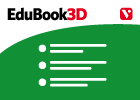
The skeletal-muscular system
EduBook Organización
- 6907 visitas
Our skeleton is made up of bones. These are living organs in our body that grow at the same rate as we grow. If they break, they can mend themselves. Some bones protect important organs in our body,…
-
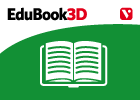
Air and the atmosphere
EduBook Organización
- 6529 visitas
Air. Air a mixture of gases. It is all around us. Hurricane. A hurricane is a very strong, destructive wind. Atmosphere. The atmosphere is the layer of air that surrounds the Earth. Oxygen. A gas.…
-

End-of-unit evaluation - The skeletal-muscular system
EduBook Organización
- 3933 visitas
Our skeleton is made up of bones. These are living organs in our body that grow at the same rate as we grow. If they break, they can mend themselves. Some bones protect important organs in our body,…
Te estamos redirigiendo a la ficha del libro...













